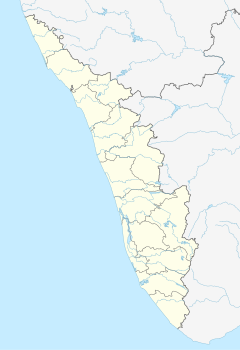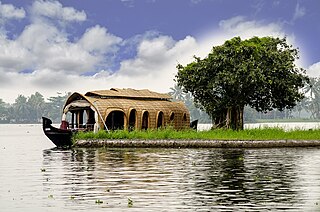
Alappuzha district, is one of the 14 districts in the Indian state of Kerala. It was formed as Alleppey district on 17 August 1957, the name of the district being changed to Alappuzha in 1990, and is the smallest district of Kerala. Alleppey town, the district headquarters, was renamed Alappuzha in 2012, even though the anglicised name is still commonly used to describe the town as well as the district.

The Kingdom of Travancore, also known as the Kingdom of Thiruvithamkoor, was an Indian kingdom from c. 1729 until 1949. It was ruled by the Travancore Royal Family from Padmanabhapuram, and later Thiruvananthapuram. At its zenith, the kingdom covered most of the south of modern-day Kerala and the southernmost part of modern-day Tamil Nadu with the Thachudaya Kaimal's enclave of Irinjalakuda Koodalmanikyam temple in the neighbouring Kingdom of Cochin. However Tangasseri area of Kollam city and Anchuthengu near Attingal in Thiruvananthapuram were parts of British India.

Dhanvantari is the physician of the devas in Hinduism. He is regarded as an avatar of Vishnu. He is mentioned in the Puranas as the god of Ayurveda.
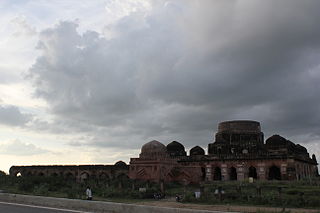
Kalpi is a historical city and municipal board in Jalaun district in Uttar Pradesh, India. It is on the right bank of the Yamuna. Once Kalpi was more important Than Orai It is situated 78 kilometres south-west of Kanpur from which it is connected by both road and rail.

Shri Manguesh temple is located at Mangeshi Village in Priol, Ponda taluk, Goa. It is at a distance of 1 km from Mardol close to Nagueshi, 21 km from Panaji the capital of Goa, and 26 km from Margao.

Alappuzha or Alleppey is the administrative headquarters of Alappuzha district in state of Kerala, India. The Backwaters of Alappuzha are one of the most popular tourist attractions in India which attracts millions of domestic and international tourists.

Jagadguru Shri Chandrasekharendra Saraswati Mahaswamigal also known as the Sage of Kanchi or Mahaperiyavar was the 68th Jagadguru Shankaracharya of the Kanchi Kamakoti Peetham. Mahaperiyavar's discourses have been recorded in a Tamil book titled "Deivathin Kural".

Chengannur is a municipality and Town in Alappuzha district, Kerala, India. It is also the headquarters of the Chengannur Taluk. Chengannur is located in the south-eastern part of the district, in the region known as Odanad, along the banks of Pamba River. Chengannur is 36 kilometres (22 mi) southeast of the district headquarters Alappuzha and 117 kilometres (73 mi) north of the state capital Thiruvananthapuram. Both the NH 183 and Main Central Road pass through the town.

Sree Venugopla Krishna Swami Devasthan is a Hindu temple located in Chendamangalam, Kerala, India. It was established in 1900 at Chendamangalam, 42 km from Ernakulam, 22 km from Aluva and 5 km from North Paravur.

Kashi Math is a matha (monastery) and a spiritual organisation followed by the Madhva section of Gaud Saraswat Brahmins, who are also referred as Madhwa Saraswat Brahmins or Vaishnava Saraswat Brahmins. It dates back to the 16th century. With its headquarters in Brahma Ghat, Varanasi. Kashi Math has followers all over the Konkan belt, prominently in Mumbai, Goa, Udupi, Mangalore, Kochi and other parts of Karnataka and Kerala.
Gaud Saraswat Brahmins (GSB) are a Hindu Brahmin community, who are part of the larger Saraswat Brahmin community that migrated to Konkan from Gaud, as per the Skanda Purana in ancient India. They belong to the Pancha Gauda Brahmins group. They primarily speak Konkani and its various dialects as their mother tongue.

Purakkad is a village in Alappuzha district in the Indian state of Kerala. It is the beach which is described in Thakazhi's novel "Chemeen".
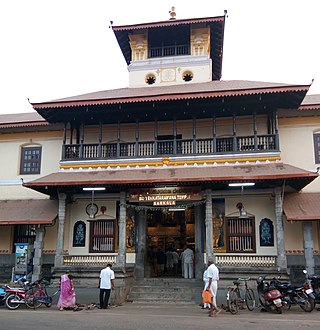
Sri Venkataramana Temple, Karkala, also known as Padutirupathi, is a temple in Karnataka, India. It was built by Goud Saraswat Brahmins of Karkala and was installed on 25 April 1537.

Shri Gaudapadacharya Math, also known as Kavaḷē maṭha, located in Kavale, Ponda, Goa, is the oldest matha of the Smarthan Saraswat Brahman Samaj. It was founded by Gauḍapāda around 740 AD, whose student was Govinda Bhagavatpada, the guru of Adi Shankara, a highly influential figure in Hinduism. There is also a belief that Gauḍapāda himself established the Shri Gaudapadacharya matha when he lived in Gomantak (Goa). Thus, the matha came to be known as Shri Saunstan Gaudapadacharya matha. Unlike other mathas, Shri Gaudapadacharya matha is not a polemical center established to influence the faith of all Hindus, its jurisdiction is limited to only Dakshinatya Saraswat Brahmins. The Peetadhipathi "head monk" is Śrī Gauḍapadācārya. Smartist Goud Saraswat Brahman Samaj and Rajapur Saraswat Brahmin are its main disciples.

Shri Raghavendra Math, better known as Rayara Math is one of the Dvaita Vedanta monasteries (matha) descended from Madhvacharya through Sri Jayatirtha further with Vibudhendra Tirtha. It is one of the three premier monasteries descended in the lineage of Jayatirtha the other two being Uttaradi Math and Vyasaraja Math and are jointly referred as Mathatraya. It is the pontiffs and pandits of the Mathatraya that have been the principle architects of post-Madhva Dvaita Vedanta through the centuries.
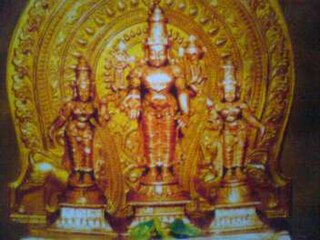
The Sri Laxmi Venkatesh Temple is foremost temple of Gowda Saraswatha Brahmins in and around Kanhangad.

Thuravoor is a gram panchayat in the Pattanakkad Block of Cherthala Taluk of the Alappuzha District, State of Kerala, India. It comes under Aroor Assembly constituency. Thuravoor lies under Kochi UA in future. A four lane(six lane is progressing) National Highway 66 passes through the village, which along with a railway station gives it excellent connectivity with the remainder of the state. Thuravoor is famous for the Narasimha Swamy temple which is dedicated to the fourth incarnation (avatara) of Vishnu, the Narasimha. The temple has two main deities, the Vadakkanappan and the Tekkanappan, which is rare among the temples of Kerala. The new 6 lane elevated highway is from thuravoor to aroor. It is the largest 6 lane elevated highway in the country. Thuravoor is a rapid developing town. It is lies in Aroor Assembly constituency. Thuravoor Kumbalangi road is a main road parallel to NH 66. Thuravoor is the major entry to Kochi city.
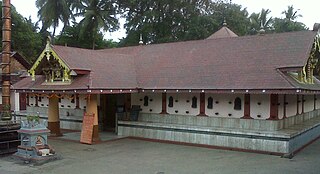
The Sri Lakshmi Narasimha Temple is the foremost temple of Gowda Saraswatha Brahmins in and around Thalassery.
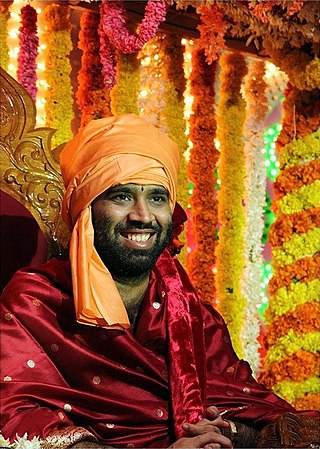
Shrimat Samyamindra Thirtha Swami , also referred to as Shri Samyamindra Thirtha Swamiji, became the head (Mathadipathi) of the Kashi Math on 28 January 2016. He is the 21st successive person called the swamiji of guru parampara.

Cochin Tirumala Devaswom, also called Gosripuram is the biggest and most important socio-religious institution of Gowda Saraswat Brahmins of Kerala, India. The temple is situated at Cherlai in the heart of Mattancherry town in Cochin area which is one of the earliest settlements of GSBs in Kerala. The temple was established in the later half of the 16th century. The history of GSBs in Kerala is inter-woven with that of this temple and its Venkateswara idol.
